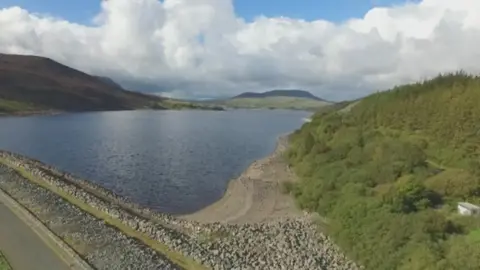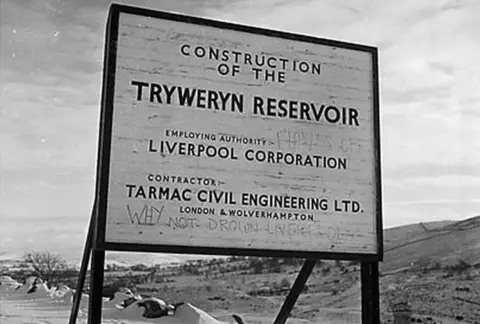Water powers agreement signed by Welsh and UK governments
New powers over water in Wales, which could prevent another Tryweryn, have been agreed by UK and Welsh ministers.
The deal, coming into force next April, means authority to make decisions will be shared by the two governments.
There was anger when the Gwynedd village of Capel Celyn was flooded in 1965 to create the Tryweryn reservoir to provide water for Liverpool.
The new water agreement was confirmed in written statements in parliament and the assembly on Thursday.

It means UK ministers will lose their power to intervene in water-related decisions taken in Wales.
The agreement replaces the intervention powers of the Welsh secretary with a reciprocal agreement between the UK and Welsh governments.
The reservoir plans were pushed through the Westminster Parliament in 1957 - despite not one Welsh MP backing it.
The event is widely viewed as a turning point in the Welsh nationalist movement at the time, with Plaid Cymru winning its first seat in the Commons in 1966 - a year after the lake was officially opened.

The legal changes to water powers were first announced in November 2016 and included in the Wales Act, which became law in 2017.
On Thursday, Welsh Secretary Alun Cairns said the new arrangements showed "how far we have come from the events of 52 years ago, which resulted in the flooding of the Tryweryn Valley".
"Today's agreement puts cross-border arrangements for water on a footing fit for the 21st Century and underlines what can be achieved when two governments work together for Wales' future prosperity" he said.
Despite the focus on the controversial decision to flood Capel Celyn, ministers have conceded that current planning laws would make a repeat of that unlikely.
The Welsh Government's Rural Affairs Secretary Lesley Griffiths said the deal addressed "an existing imbalance in the devolution settlement that could, in theory, result in UK Government ministers intervening in matters that are the responsibility of the Welsh Government".
"I am pleased with the constructive and positive way in which both administrations have approached the drafting and implementation of an agreement which, importantly, means water consumers on both sides of the border are safeguarded."